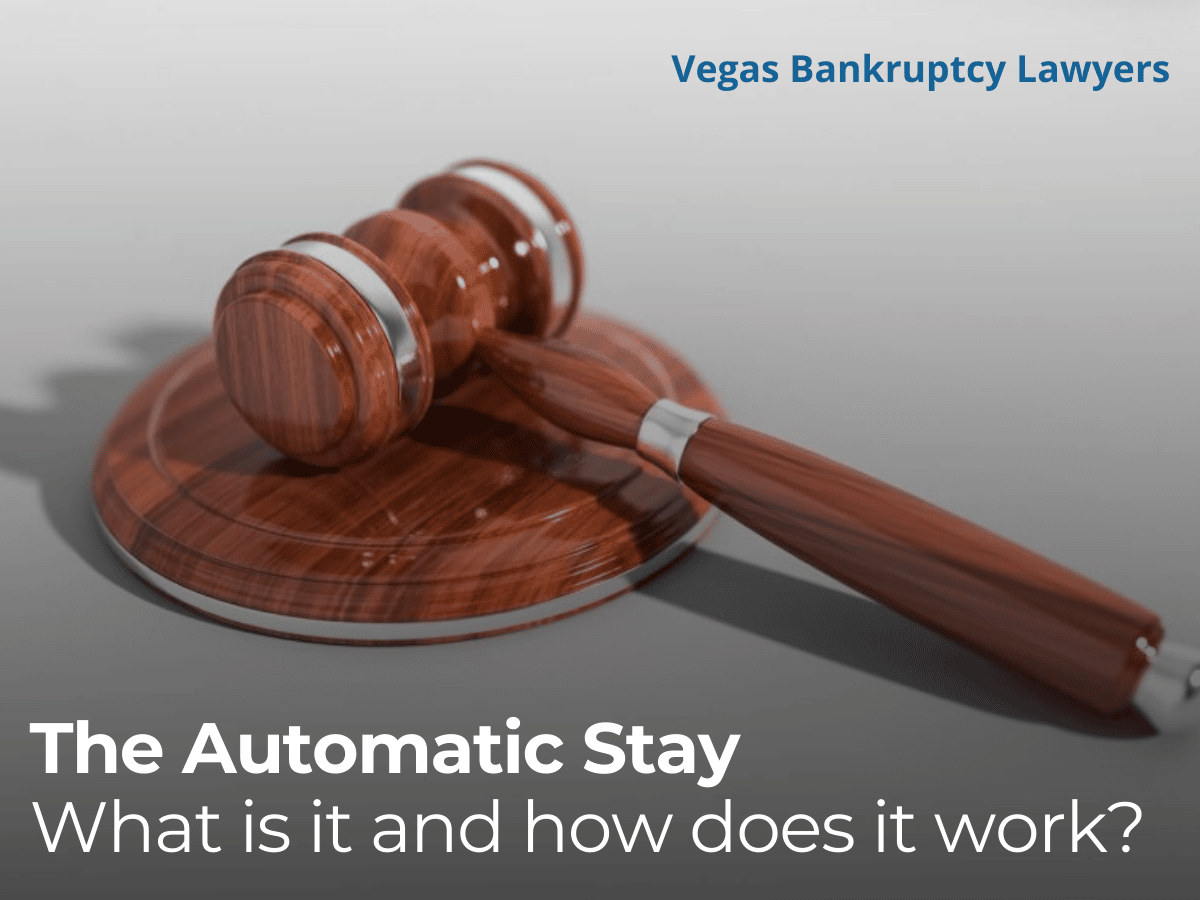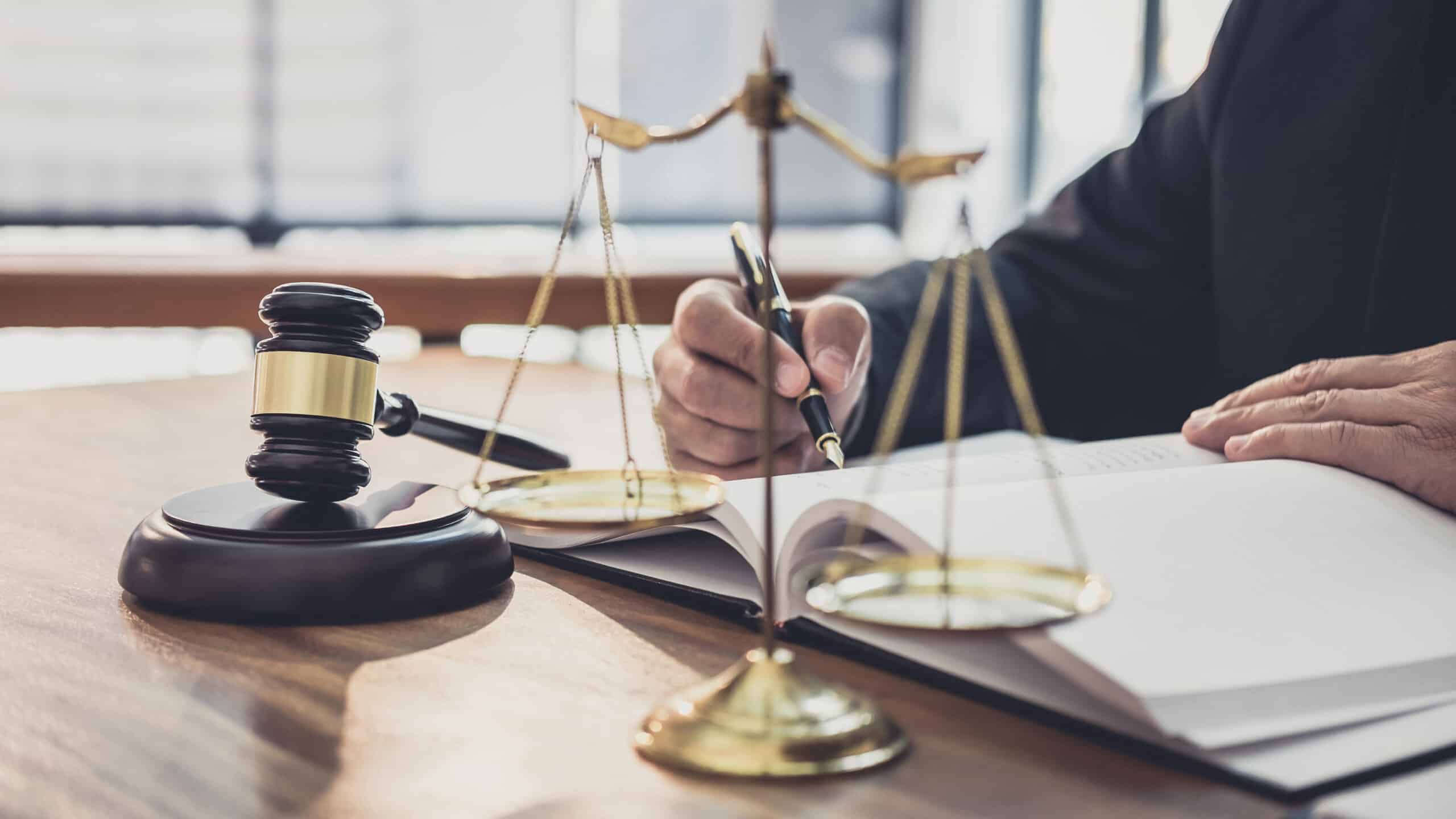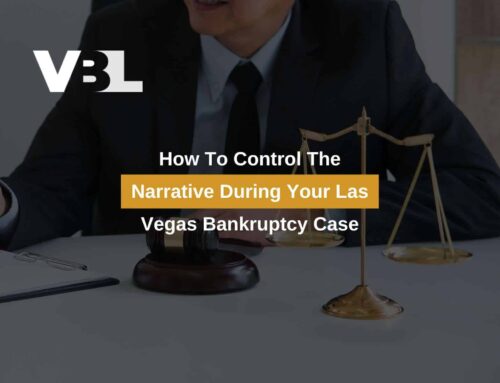The Automatic Stay: What is it and how does it work?
The Automatic stay is a legal term used when a consumer files for bankruptcy protection. It is a stay, which means any collection attempts by a creditor, law suits, or garnishments must stop when a bankruptcy is filed. This provides the relief needed from most collection efforts, and it goes into effect immediately when a bankruptcy petition is filed, and stays in place until the completion of the bankruptcy (discharge or dismissal). The automatic stay is granted for both Chapter 7 bankruptcy and Chapter 13 bankruptcy filings.

How the Automatic Stay will Help You
If you are experiencing harassment by creditors, the automatic stay can be beneficial. To suspend collection activities against you, the automatic stay will go into effect as soon as you file bankruptcy. The automatic stay is an injunction that helps you by suspending collection attempts as you reorganize your debt or restore your finances. Examples of collection attempts including: vehicle repossession, home foreclosure, and wage and bank account garnishment. If you need the protections provided by the Automatic Stay immediately, you should discuss the possibility of an emergency filing with your attorney. They will submit only a portion of your petition to activate the Stay, and have a short deadline to complete the rest of your petition.
The automatic stay is a powerful legal protection that goes into effect immediately upon filing for bankruptcy in Las Vegas or anywhere else in the United States. It provides significant relief and benefits to debtors by temporarily halting most creditor actions and providing some breathing room to address their financial difficulties. Here’s how the automatic stay can help you when filing for bankruptcy in Las Vegas:
Creditor Harassment Relief

Legal Proceedings Halt
The automatic stay puts a hold on any ongoing or pending legal actions against you. This means that lawsuits, foreclosures, repossessions, and wage garnishments must come to a temporary halt. If a creditor has initiated legal proceedings, those proceedings will be paused until the bankruptcy process is resolved.
Utility Services Protection
If utility services like electricity, gas, or water were at risk of being disconnected due to unpaid bills, the automatic stay prevents utility companies from disconnecting these services during the stay period.
Eviction Postponement
If you’re facing eviction from your residence, the automatic stay may temporarily halt eviction proceedings. However, it’s important to note that this protection is generally more effective in Chapter 7 bankruptcy if you’re behind on rent, while in Chapter 13, you may be required to catch up on past-due rent through a repayment plan.
Time to Assess Your Financial Situation
The automatic stay provides you with a breathing space to assess your financial situation, consult with an attorney, and determine the best course of action. It allows you to organize your finances and develop a plan for addressing your debts.
Protection for Co-Debtors
The automatic stay also provides protection for co-debtors, such as co-signers on loans. While it doesn’t eliminate their obligations, it prevents creditors from pursuing them for payment during the bankruptcy process.
It’s important to understand that the automatic stay is not indefinite. Its duration depends on the type of bankruptcy you file and your previous bankruptcy history:
- In Chapter 7 bankruptcy, the automatic stay typically remains in effect until the discharge of your debts, which usually takes a few months from the filing date.
- In Chapter 13 bankruptcy, the automatic stay can last for the duration of your repayment plan, which can span three to five years.
While the automatic stay is a powerful tool for obtaining relief from creditor actions, it’s essential to consult with an experienced bankruptcy attorney in Las Vegas to navigate the bankruptcy process effectively and ensure that your rights are protected under the automatic stay. Additionally, some exceptions to the automatic stay exist, such as for certain types of tax actions or child support proceedings, so it’s crucial to understand the specific details of your case.
When a Las Vegas Bankruptcy attorney files a bankruptcy petition, a list of creditors is also filed. Each creditor is notified of the automatic stay by the bankruptcy court. If you are facing a wage garnishment, you will need to provide your bankruptcy case number to your employer so they know to cease garnishment of your wages. Filing bankruptcy may be in your best interest if you require immediate action to stop a foreclosure, wage garnishment, or repossession, as the automatic stay is granted. Best practice is to seek the assistance of a Nevada debt relief attorney to assist you with your bankruptcy to assure that all of your creditors are given proper notice. With proper notice and the assistance of the automatic stay, creditors no longer will harass you.
When filing for bankruptcy in Nevada, notifying your creditors is a crucial part of the process. Bankruptcy is a legal proceeding that involves the discharge or restructuring of your debts, and notifying your creditors allows them to participate in the process and potentially receive a portion of the funds available for distribution. Here’s how creditors are typically notified when you file for bankruptcy in Nevada:
Filing the Bankruptcy Petition

Automatic Stay in a Nevada Bankruptcy
Upon filing your bankruptcy petition, an “automatic stay” goes into effect. This legal injunction prohibits creditors from pursuing collection activities against you, including phone calls, letters, lawsuits, or wage garnishments. This stay provides temporary relief while the bankruptcy case is pending.
Notice of Filing For Bankruptcy in Nevada
The bankruptcy court will send a notice to all of the creditors you listed in your bankruptcy petition. This notice informs them that you have filed for bankruptcy and that an automatic stay is in place.
Meeting of Creditors (341 Meeting)

A meeting of creditors, also known as a 341 meeting, is scheduled. During this meeting, you, your bankruptcy attorney (if you have one), the bankruptcy trustee, and your creditors are invited to attend. Creditors have the opportunity to ask questions about your financial situation and assets.
Proof of Claims:
Creditors are given a specific deadline to file a “proof of claim” with the bankruptcy court. This document outlines the debt owed, the amount owed, and any supporting documentation. Creditors must submit this proof of claim if they want to participate in the distribution of assets.
Review and Distribution
The bankruptcy trustee reviews the claims submitted by creditors and determines the priority and validity of each claim. Depending on the type of bankruptcy (Chapter 7 or Chapter 13), assets may be liquidated to pay off creditors, or a repayment plan may be established to prioritize certain debts.
Discharge or Repayment
Once the bankruptcy process is completed, eligible debts are either discharged (eliminated) or restructured as per the court-approved repayment plan. Creditors whose claims were approved receive their share of the available assets.
Court Orders
The bankruptcy court issues orders that outline the discharge of debts and the repayment plan. These orders are binding on both you and your creditors.
It’s important to note that not all creditors may receive full or partial payment, depending on the assets available and the bankruptcy chapter filed. Additionally, certain types of debts, such as child support, alimony, and some tax debts, may not be dischargeable in bankruptcy.
There are certain collection actions that the automatic stay will not stop. Child support, divorce proceedings, criminal restitution, or tax debt, for instance, may not be stopped under the automatic stay. If they are stopped by the automatic stay, the collection will recommence once your case is completed. This is because these debts are non-dischargeable, and you will remain liable for them after your bankruptcy is finished. A bankruptcy case will either end in discharge or dismissal. Discharge is a successful completion of a bankruptcy case, with the filer no longer liable for their debts. A dismissal is when the judge or trustee finds an inaccuracy or inconsistency in the debtor’s petition and throws out the case. Contact our Las Vegas bankruptcy law firm and speak to our experienced Vegas attorney about your particular situation to determine if the automatic stay would be beneficial for your particular debt situation.
Your Creditors May Attempt to Bypass the Automatic Stay to Proceed with Collection
The automatic stay is powerful. It is used to stop creditors from taking property that is exempt under bankruptcy law or that belongs to the bankruptcy estate. Creditors may ask the judge to remove the automatic stay. They will do so by filing a Motion for Relief from the Automatic Stay. If this Motion is granted, your creditor will be allowed to proceed with the garnishment, repossession, or foreclosure. Even if you filed your case without an attorney, you should contact one immediately if you receive notice of your creditor filing this Motion. You will need to respond to your creditor’s request swiftly to ensure your Automatic Stay of protection remains intact.
Still Have Questions about the Automatic Stay?
Bankruptcy is a complicated and confusing process, and you shouldn’t be embarrassed if you have more questions. Our professional bankruptcy staff is available for phone consultations so you can discuss your potential case from the privacy of your home. Our consultations are free of charge, so you can consider this important decision risk-free. If you have questions about how you can benefit from the Automatic Stay, which Chapter of bankruptcy you qualify for, the long-term effects of filing Bankruptcy, or how much it will cost, don’t hesitate to call. Get the ball rolling towards a financial clean slate and contact our Clark County Bankruptcy office today.
The Law Office of Erik Severino
Vegas Bankruptcy Lawyers
7251 W Lake Mead Blvd
Las Vegas, NV 89128
Phone : (702) 370-0155
Email: [email protected]
Website: https://lasvegasbankruptcylawyer.co/
















